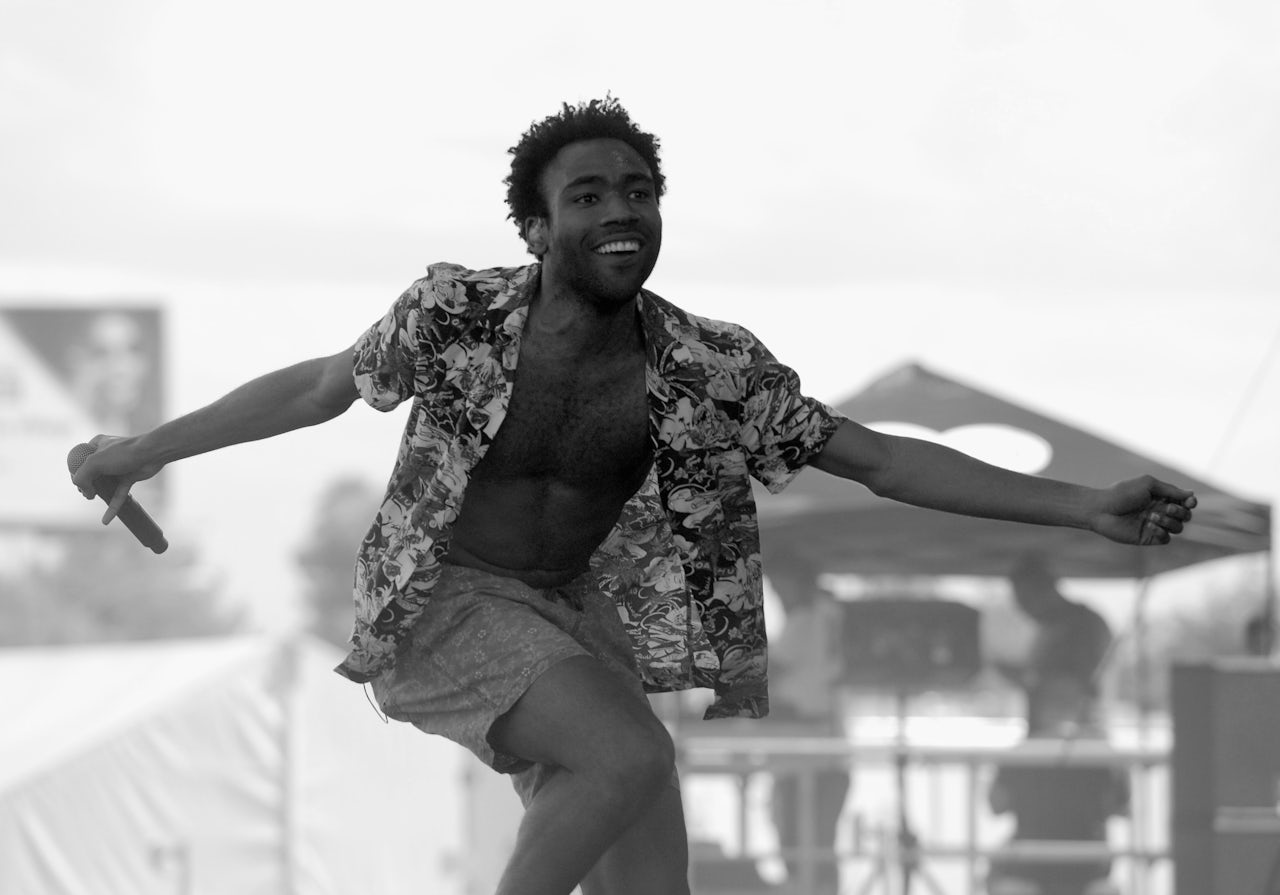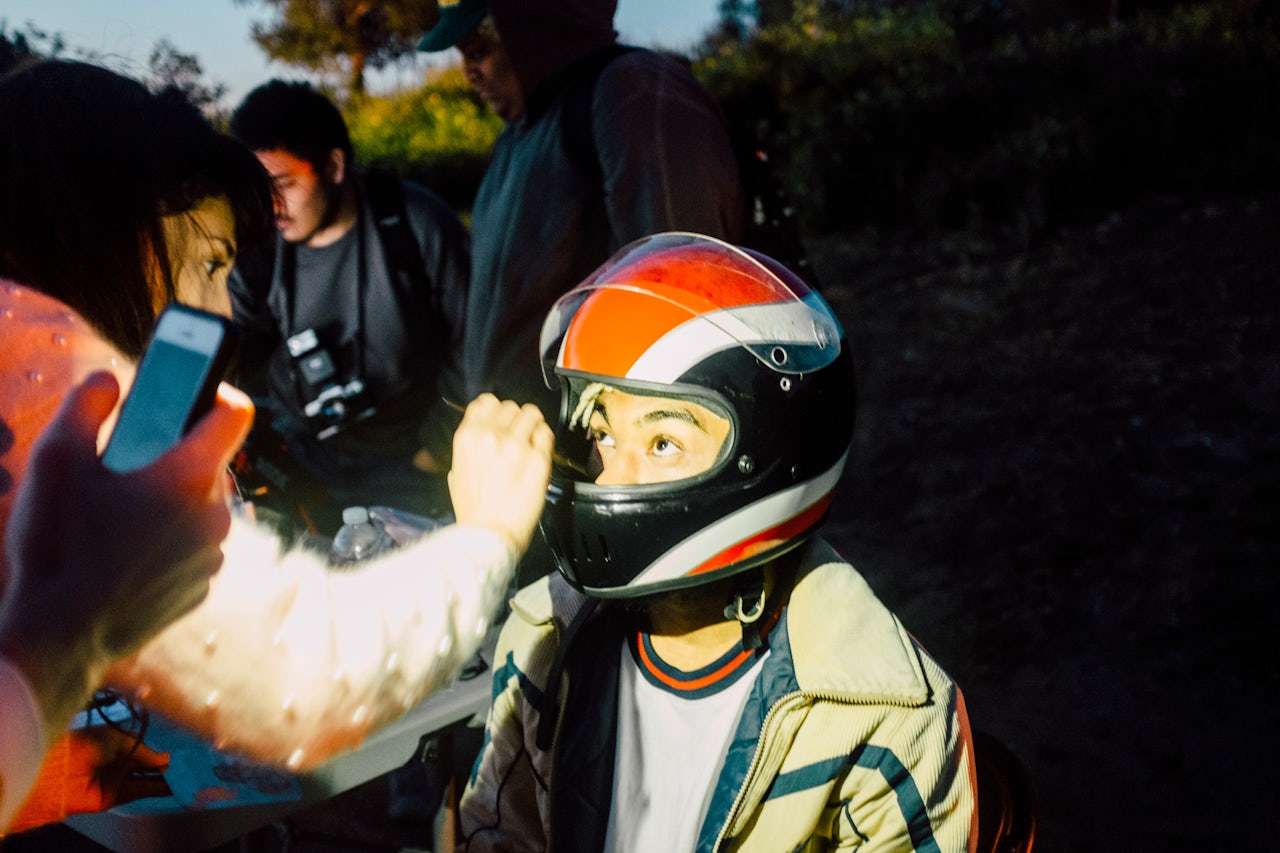Revisiting an artist’s early work can feel like an exercise in forensics. Every so often I find myself deep in the Drake folder on my iPhone, listening to a track like “Think Good Thoughts” from his 2007 mixtape Comeback Season, and picking out the vocal tics and rhyme schemes he still defers to, 10 years later. Childish Gambino, the music moniker of multi hyphenate-artist Donald Glover, has a back catalog that’s similarly illuminative. In 2010, Gambino, then known for his role on the NBC’s Community, released a pair of scrappy mixtapes, I Am Just a Rapper and I Am Just a Rapper 2. The releases were, technically speaking, not very good. But they do offer an instructive look at an artist whose career arc has coincided with a tectonic shift in how blackness is perceived and expressed in popular culture.
In the near-decade since he began releasing music, Glover has landed film roles, put out stand-up specials, and created the critically acclaimed FX series, Atlanta. Last weekend, he announced that his next album as Childish Gambino would be his last. A few days later, Glover confirmed his intention in an interview with HuffPost. “There’s nothing worst than like a third sequel, like a third movie and we’re like, ‘again?’” he said. “You know, I like it when something’s good and when it comes back there’s a reason to come back, there’s a reason to do that.”
Gambino’s first mixtapes came a couple of years before the I Am Just a Rapper series. In 2008, he’d dropped Sick Boy, a project that can be described as expressing a racial identity crisis. He rapped over popular indie tracks and made frequent references to being a social outcast. My introduction to Gambino’s music happened in 2010, with the track “Bitch Look At Me Now.” He raps lines like “You are now listening to my mouth on vacation" over Grizzly Bear’s hit “Two Weeks” — the song itself, not a sample of it. Ed Droste’s vocals can still be heard in the backdrop, making for a cacophonous listen.
By this point, Glover’s acting career had begun to take off thanks to Community, and few people took his rapping seriously. With a name literally taken from a Wu Tang name generator, an awkward flow, and a high-pitched delivery, it was unsurprising. But it was around this time, too, that a devout following began to develop for Childish Gambino.
In his 2010 comedy special Black Nerd, Glover gave voice to what he perceived to be a shift in American culture. He described a phenomenon of black people breaking out of stereotypical identities — not just in their personal lives, but in public, in full view of the entire country. “Obama is a black nerd,” he quipped. And rappers like Tyler, the Creator had burst into popularity with brightly colored and patterned clothes and a passion for skateboarding and punk rock. Of course, there have always been black nerds, and black people had always had all kinds of interests and have been instrumental to a variety of scenes and subcultures. But rarely had those identities been acknowldged by mainstream pop culture, which expected certain things of the black people it represented.
Glover’s special spoke to what felt like a growing new normal, where the scope of what it meant to be and act “black” was being exploded in pop culture. It’s what I found so appealing in the early Gambino mixtapes. In 2010, I was a senior in high school, where the experience of being bullied for being a black skateboarder and wearing skinny jeans made me feel isolated from my own racial identity. Never did I reject the fact that I was black; I just wanted to be able to be myself at the same time. Listening to Gambino rap over Neon Indian provided solace that I hadn’t yet found anywhere else.
For a long time, rappers like Childish Gambino seemed like a necessary salve.
Gambino’s appeal soon caught on, and he went on to release a spree of mixtapes and albums. But it wasn’t until last year’s Awaken, My Love! — released in the wake of the runaway success of Atlanta — that his music seemed like it was beginning to translate to people who may have never identified with the social isolation he had spent the early years of his career expressing, admittedly sometimes clunkily. His 2011 album, Camp, was skewered by Pitchfork’s Ian Cohen who, in a bafflingly unaware passage, wrote:
“[L]et's just look at the facts: Jay-Z and Beyoncé could be seen at Grizzly Bear shows in 2009, Justin Vernon has a free pass to jump on any track he chooses, and producers spent the year sampling Beach House, the xx, and Tame Impala. How does Glover explain Drake? Is he "crazy or hood," or just a half-Jewish, former child actor from Toronto who's already sold 600,000 copies of Take Care while signed to Lil Wayne's record label? I mean, sub-major hip-hop isn't a post-cred, post-racial utopia by any means, but I can't think of another time when there were more options for listeners of just about any race or background seeking to identify with rappers on a non-allegorical level.”
Glover’s creative output, as both Childish Gambino and Donald Glover, has always dealt with cultural specificity. It is impossible for a white critic, or even a black critic to whom that specificity doesn’t quite apply, to understand what it was like to be a “black nerd” of Glover’s conception, and that’s the point. For a long time, rappers like Childish Gambino seemed like a necessary salve. But today, the genre and identity boundaries that once stratified music have softened. Quavo, a member of the Atlanta rap trio Migos, is featured on 10 tracks on the Billboard Hot 100 in a variety of genres. And popular young artists, like Kevin Abstract or Lil Uzi Vert, regularly subvert expectations of black masculinity, even as people attempt to police their self-expression. Some of his earliest fans, who found refuge in a voice they could identify with, have more options than ever now. Which makes it a perfect time for Gambino to hang it up. The work of Childish Gambino was important, but it may simply be finished.

